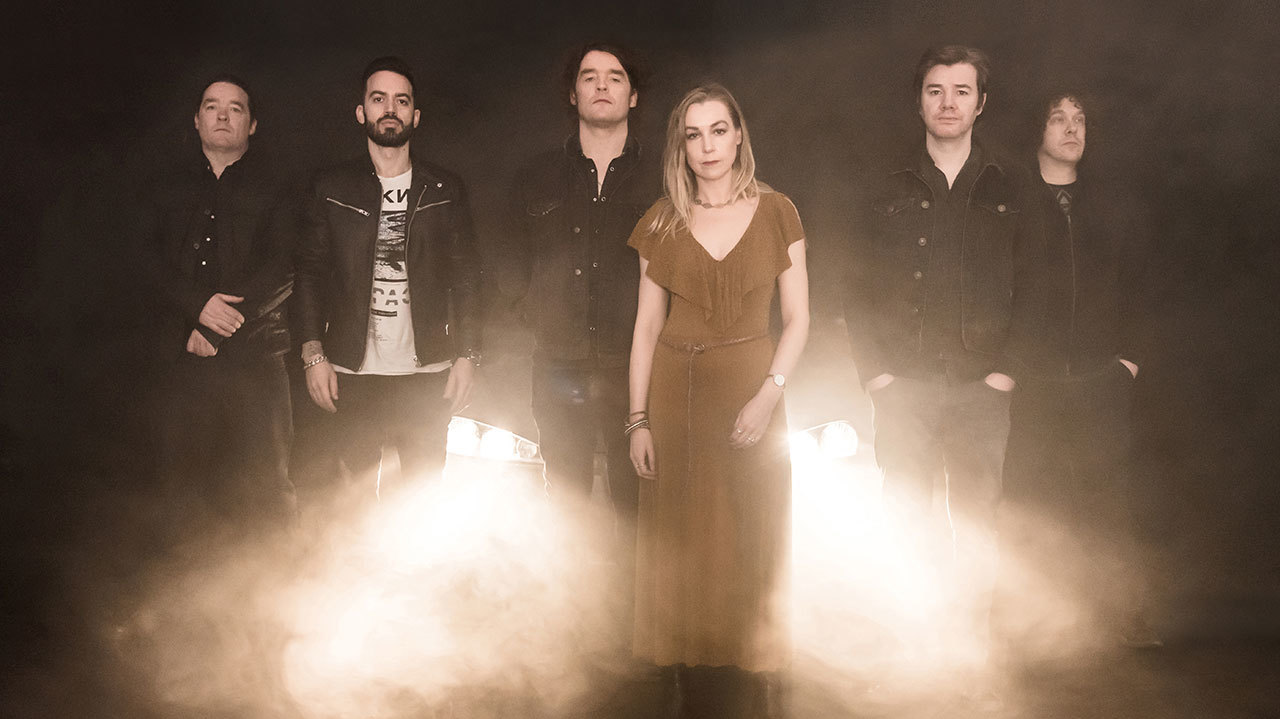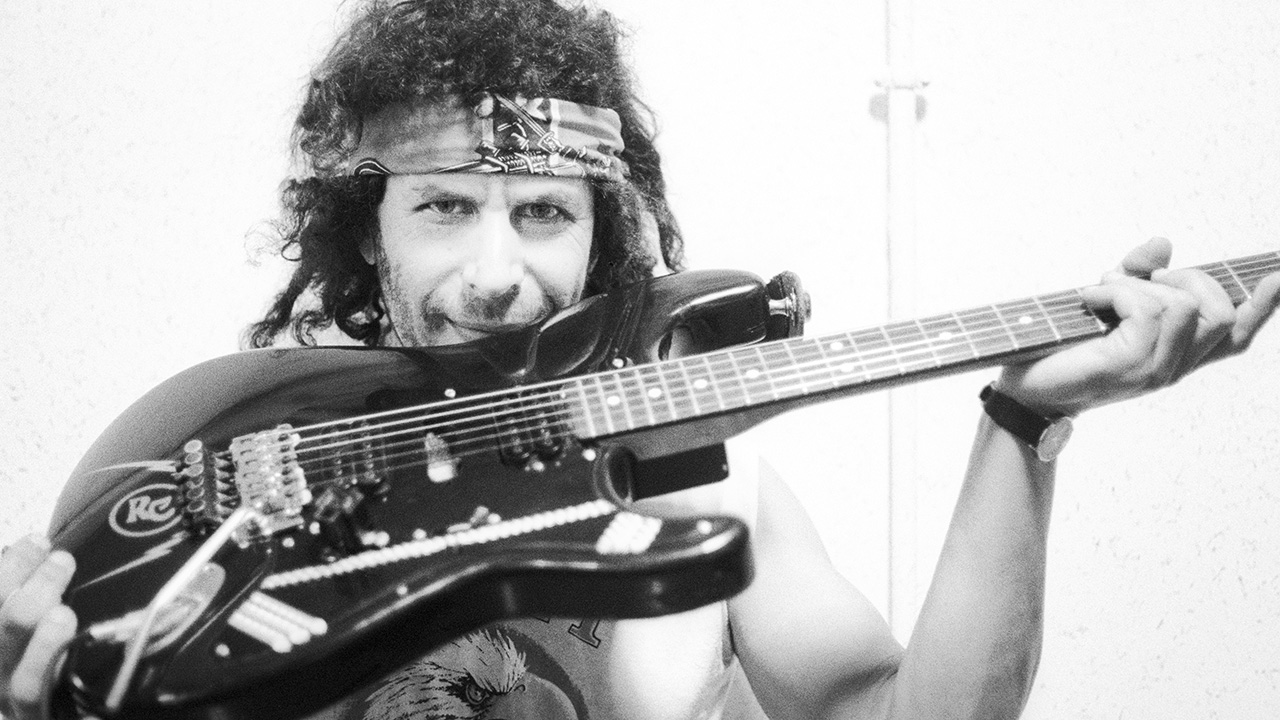Anathema: "We don’t write about politics. Our stuff is a personal story"
Usually when a band say they’re “up there with the best” it’s arrogance. This band might have a right to say it

Select the newsletters you’d like to receive. Then, add your email to sign up.
You are now subscribed
Your newsletter sign-up was successful
Want to add more newsletters?

Every Friday
Louder
Louder’s weekly newsletter is jam-packed with the team’s personal highlights from the last seven days, including features, breaking news, reviews and tons of juicy exclusives from the world of alternative music.

Every Friday
Classic Rock
The Classic Rock newsletter is an essential read for the discerning rock fan. Every week we bring you the news, reviews and the very best features and interviews from our extensive archive. Written by rock fans for rock fans.

Every Friday
Metal Hammer
For the last four decades Metal Hammer has been the world’s greatest metal magazine. Created by metalheads for metalheads, ‘Hammer takes you behind the scenes, closer to the action, and nearer to the bands that you love the most.

Every Friday
Prog
The Prog newsletter brings you the very best of Prog Magazine and our website, every Friday. We'll deliver you the very latest news from the Prog universe, informative features and archive material from Prog’s impressive vault.
Vincent Cavanagh is in a confident mood. “We’re in the top five bands in this country,” says Anathema’s vocalist and guitarist. “There’s loads of good bands in Britain, and I think we’re right up there with the best of them. Not just in any sub-genre, just in fucking music in general.”
His words aren’t just empty bravado. The Liverpool band’s journey from doom-metal troglodytes to musically and emotionally expansive Floydian frontiersmen is one of rock’s most unlikely yet welcome evolutions. Their eleventh album, The Optimist, is a sequel of sorts to 2001’s A Fine Day To Exit, which dealt with the last moments of a man on the verge of suicide.
The Optimist opens with the sound of someone crawling out of the sea, right?
It’s the character from A Fine Day To Exit pulling himself out of the water, getting back into his car and driving off. The rest of the album takes on the scenes that he experiences – it’s almost like a twenty-four-hour period in his life, where he’s trying to come to terms with everything that’s happened to him, his past life and family, where he is now.
How autobiographical is it?
It’s semi-autobiographical. Our stuff is really confessional and personal. The difference on this record is that we’ve put a surrogate in, which is The Optimist – the guy from A Fine Day To Exit. It adds a level of ambiguity.
The title of the first track, 32.63N 117.14W, is a set of co-ordinates. For what?
Sign up below to get the latest from Classic Rock, plus exclusive special offers, direct to your inbox!
It’s the co-ordinates of Silver Strand Beach in San Diego, where the A Fine Day To Exit cover photo was taken. It was The Optimist’s last-known location.
Is that title an ironic reference to what’s going on in the world right now with Donald Trump?
No, it’s nothing to do with anything political or global. We don’t write about politics. Our stuff is a personal story.
What does it refer to, then?
Where it came from originally was a German TV documentary called Die Optimisten, about this refugee from Syria who had made this incredible journey to get to Germany. And in the documentary he was talking about our band – we’re really well-known in Syria. The idea that someone can go through this intense struggle and still keep a positive attitude really resonates. They’re portrayed as a swarm – that’s the term people use, ‘swarm’. You forget about the individuals. They might be the same as your brother or sister or cousin.
On the album’s final track, Back To The Start, there’s what sounds like a football chant buried in the mix.
That’s about a thousand Argentinians singing a football song to us: ‘¡O Argentina, es un sentimiento, ¡no puedo parar! Olé olé olé, olé olé olé olá! ¡Olé olé olé cada día te quiero más!’ It’s a song they sing to the national football team, but they’ve supplanted the word ‘Argentina’ with ‘Anathema’. I’m looking forward to going back and playing that song there to see what they do.
It’s twenty-five years since your first EP. How do you look back on the last quarter-century?
This band is stronger than a marriage. It’s a brotherhood, but it’s deeper. The first thing to remember is that it’s a family first and a band second. You look after each other, your band will be alright.
The Optimist is out on June 9 via Kscope.
Dave Everley has been writing about and occasionally humming along to music since the early 90s. During that time, he has been Deputy Editor on Kerrang! and Classic Rock, Associate Editor on Q magazine and staff writer/tea boy on Raw, not necessarily in that order. He has written for Metal Hammer, Louder, Prog, the Observer, Select, Mojo, the Evening Standard and the totally legendary Ultrakill. He is still waiting for Billy Gibbons to send him a bottle of hot sauce he was promised several years ago.

